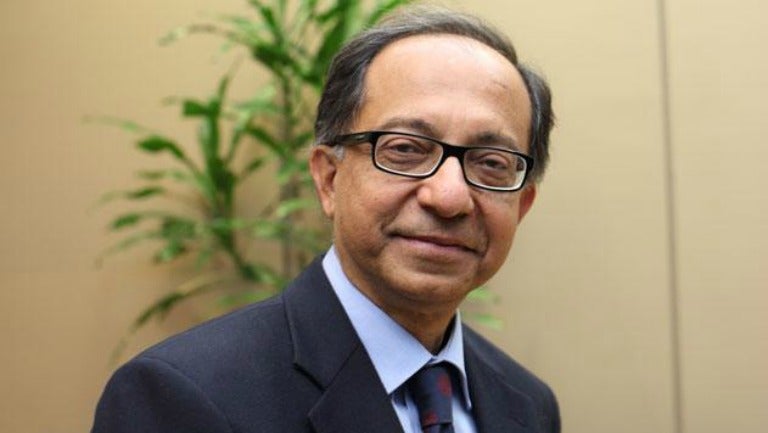Title: World Bank: Technology Key to Developing Countries Facing Poverty
World Bank Chief Economist and Senior Vice President Kaushik Basu will deliver the first of two lectures at Georgetown on the challenges of global economic development Feb. 10.

Developing countries with abundant labor forces that maximize new technologies are most likely to experience rapid economic growth, Kaushik Basu, chief economist and senior vice president of the World Bank, said Feb. 10 at a lecture at Georgetown.
Basu spoke yesterday as part of a semester-long conversation on “The Global Future of Development,” organized by the university’s newGlobal Futures Initiative.
The former chief economic advisor to the Government of India pointed to new technologies that link labor to distant markets and make labor more efficient.
“Poor countries with a lot of labor that can organize themselves reasonably well to take advantage of this changing technology will probably be at the forefront,” he added, citing India as an example.
Continuing the Conversation
Basu, onleave from Cornell University, where he is an economics professor and the C. Marks Professor of International Studies, gave the second lecture in the series.
World Bank Group President Jim Yong Kim delivered the inaugural Global Futures lecture on pandemic response at Georgetown Jan. 27.
Both speakers talked about the World Bank’s goal to end extreme poverty by 2030.
Today, he said, approximately 1 billion people – 14.5 percent of the world’s population – live on less than $1.25 a day, compared to 36.4 percent in 1990.
“What is shocking is not the low (poverty) line, but that there are so many people below that line,” said Basu. “It is unconscionable in today’s world, which is growing so well, to have this.”
Shared Prosperity
In many cases, he said, developing countries that have enjoyed strong economic growth over the past decade have also experienced widening inequality.
“Some inequality has to exist in life – that’s what makes an economic engine function,” Basu explained, “But the amount of inequality that exists today in the world – there is something wrong with that.”
Basu attributes “the bulk of human inequality” to circumstances at birth, not the preferences or industriousness of individuals over lifetimes.
In an effort combat inequality, the World Bank is directly measuring the growth in income, per capita, of the poorest 40 percent of populations to see how those conditions may or may not be changing.
In countries such as China and India, he said the bottom 40 percent is growing more slowly than the top 60 percent.
Global Futures Initiative
“Through the Global Futures framework, we seek to bring the strengths of our community here at Georgetown and like-minded institutions to bear on pressing issues of our time through dialogue, research and experiences that prepare our students for the responsibilities of global citizenship,” said Georgetown President John J. DeGioia in his opening remarks.
The next Global Futures lecture will take place on March 18, when Kim will return to Gaston Hall to speak on climate change. Basu’s second lecture at Georgetown, on “Development Economics: The Big Open Questions,” will take place April 7.
AGlobal Futures blog, including insights from 40 students, faculty and practitioners around the world, is designed to make the spring 2015 conversation about “The Global Future of Development” truly global, said Thomas Banchoff, vice president for global engagement.
Global Futures is also collaborating with the Designing the Future(s) Initiative in the launch of the Global Futures Curriculum Studio, and will soon award its first round of Global Futures research grants.